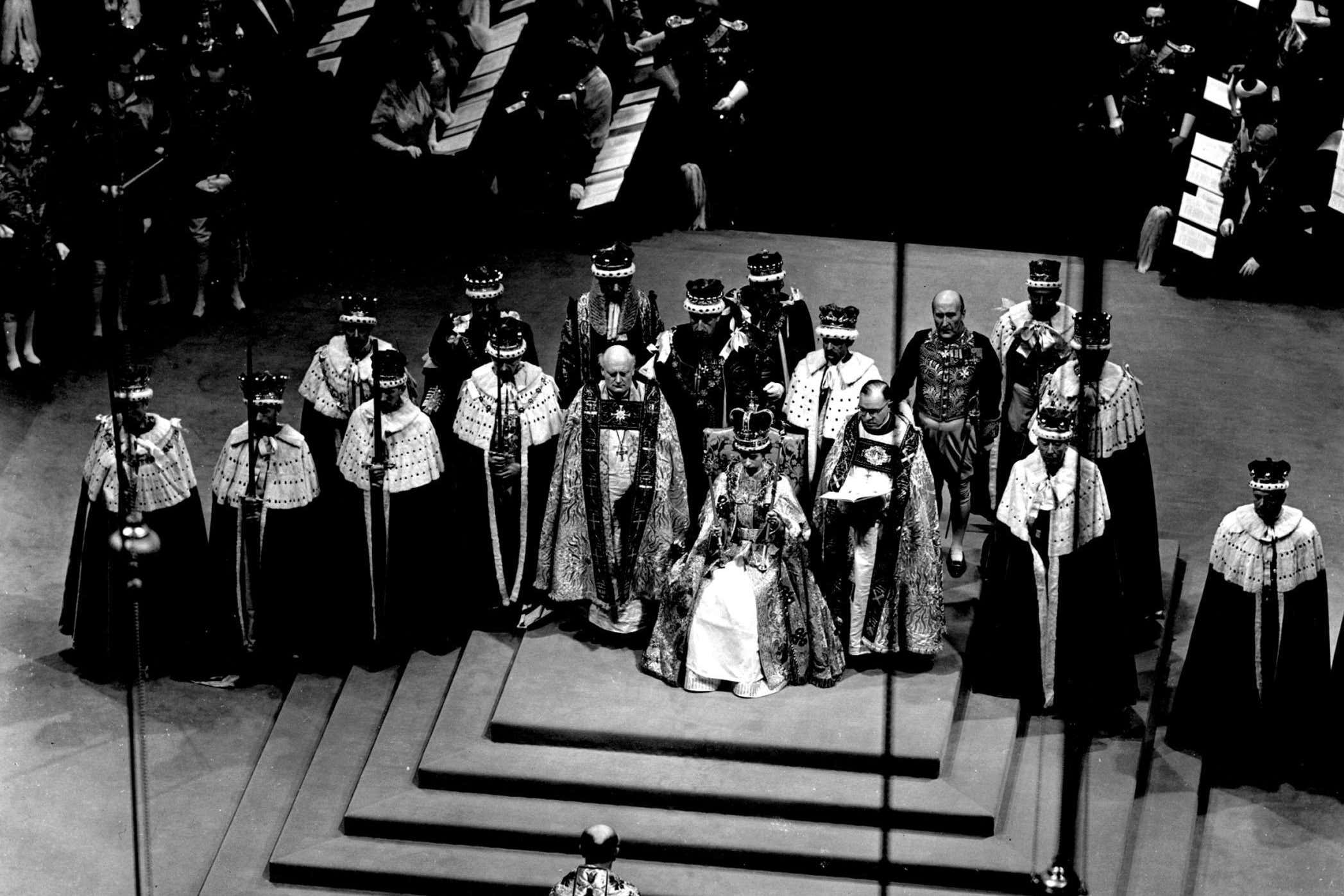Anointing of King Charles III at coronation will not be shown on TV
The sacred ceremony will be shielded from public view as it has been in previous coronations
The sacred anointing of King Charles III will not be screened on television during the coronation ceremony on Saturday 6 May.
Palace sources have confirmed to multiple outlets that the King will follow in his mother’s footsteps by barring cameras from filming the moment he will be anointed with holy oil by the Archbishop of Canterbury.
It comes after previous reports speculated that Charles could be the first monarch to allow the public to view the anointing ceremony by using a transparent canopy – unlike previous ceremonies, which were shielded from view.
During the late Queen Elizabeth II’s coronation in 1953, she was seated in the ceremonial Coronation Chair under the canopy, which was held up by four Knights of the Garter.
When the anointing took place, however, the canopy was adjusted to shield her from public view. The late Queen’s coronation was the first to be televised in full, except for the moment of the anointing.
According to The Times, a royal source said: “Precedent has never been for it to be a publicly viewable moment, given its sanctity. A way has been found to ensure that remains the case this time.”
The ceremony traditionally features the Archbishop pouring holy oil from the Ampulla (vessel) into the Coronation Spoon, a silver-gilt spoon that dates back to 1349 and is believed to have been supplied to Henry II or Richard I.
The Archbishop then anoints the sovereign on the hands, breast and head. It serves to emphasise the spiritual status of the sovereign, who until the 17th century was considered to have been appointed directly by God.

Another source was quoted by The Mirror as saying: “This is the most holy and sacred of the entire ceremony, where monarchs who have gone before have been upheld.
“The King takes his role and relationship [with God] extremely seriously and will continue with the anointing as it has been carried out before in full.”
In March, it was revealed that the oil used to anoint the King and Queen Consort Camilla will be cruelty-free, as it will not contain animal products as previous versions have.
The traditional formula for the “holy oil” includes civet oil, from the glands of the small mammals, and ambergris from the intestines of whales.
The altered formula reflects concerns about animal cruelty and the need to protect wildlife. It is made with olive oil and perfumed with essential oils including sesame, jasmine, cinnamon, neroli, benzoin and amber, and orange blossom.
Join our commenting forum
Join thought-provoking conversations, follow other Independent readers and see their replies
Comments


Bookmark popover
Removed from bookmarks